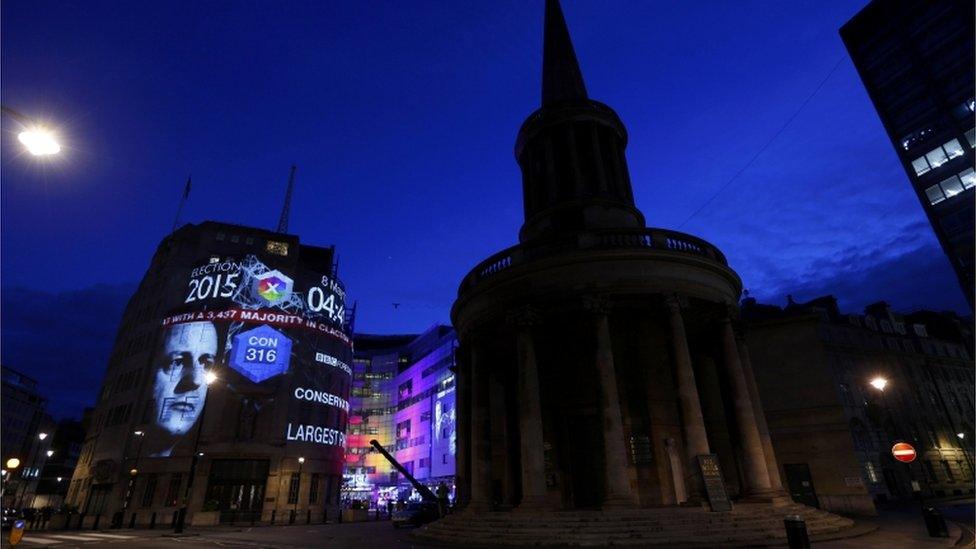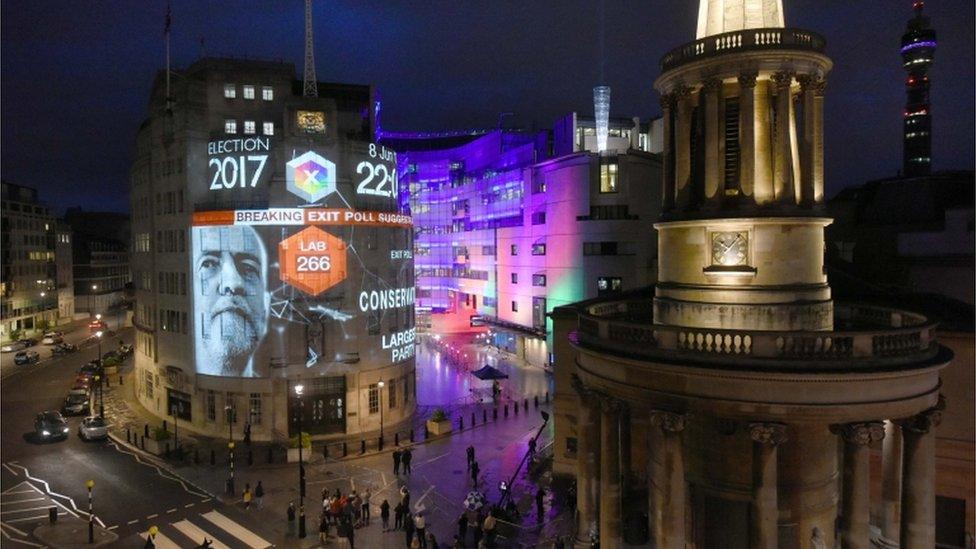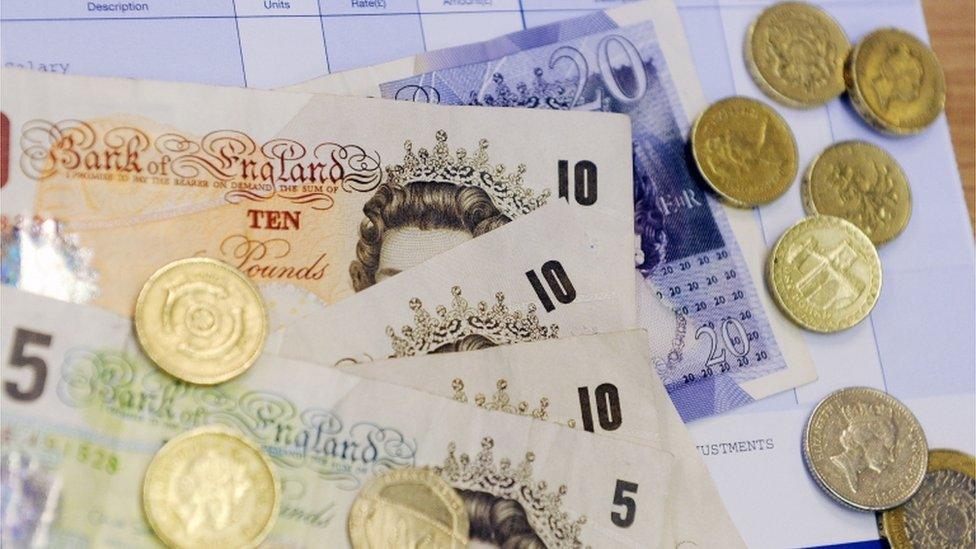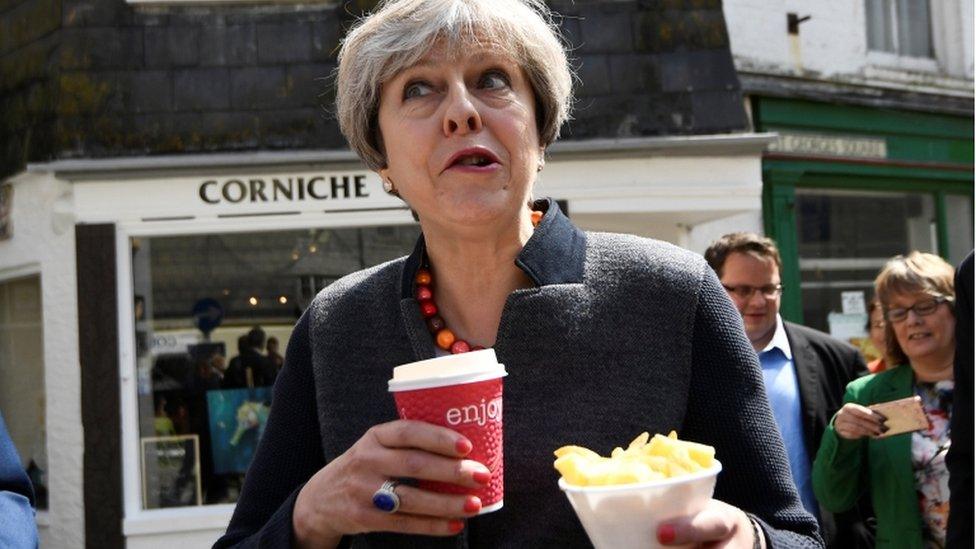Echoes of Ed in Theresa May's policies?
- Published

The most dramatic policy announced in Wednesday's Budget was an overhaul of stamp duty - the tax will be abolished for first time buyers on homes worth up to £300,000.
It wasn't the first time this has been proposed.
During the 2015 general election campaign, Labour leader Ed Miliband unveiled a policy remarkably similar to the one just announced by the Conservatives.
And stamp duty isn't the only time Theresa May's Conservatives have announced a policy similar to one proposed by Ed Miliband - nor is it the only similarity between the two party leaders.
Energy price cap
Back in 2013, Ed Miliband announced a plan to freeze gas and electricity bills for 20 months.
"The companies won't like it because it will cost them money. But they have been overcharging people for too long because of a market that doesn't work," the then Labour leader said.
At the time, this plan was savaged by Conservative politicians.
Then prime minister David Cameron derided the policy as "Marxist", while Chancellor George Osborne said it would mean companies would not invest and prices would go up for consumers in the long term.
But four years later, Theresa May announced a price cap would form part of the Conservatives' 2017 general election manifesto. She insisted the policy wasn't exactly the same as Miliband's, but the two plans were undoubtedly very similar.
When the plan was floated, Miliband - liberated from the constraints of frontline politics - tweeted sarcastically:
Allow X content?
This article contains content provided by X. We ask for your permission before anything is loaded, as they may be using cookies and other technologies. You may want to read X’s cookie policy, external and privacy policy, external before accepting. To view this content choose ‘accept and continue’.
Exit poll upsets
At 21:59 BST on 7 May 2015, it seemed very possible that Ed Miliband would become the next prime minister.
The two big parties were neck-and-neck in the polls throughout the campaign, with Labour ahead slightly more often than the Conservatives. But it wasn't to be.

David Cameron unexpectedly won a majority in 2015 - Mr Miliband quit the next day

The 2017 exit poll was the first sign that the Conservatives had lost their majority
The exit poll at 22:00 BST showed Labour had done far worse than expected. The Conservatives ended up winning an overall majority and Mr Miliband resigned the next morning.
"It was a terrible shock," he told the BBC, two years later. "The days afterwards were very, very upsetting days."
In June 2017, the Conservatives lost that overall majority after Theresa May called a general election, asking voters to "strengthen her hand" in the Brexit negotiations.
She started the campaign with a huge lead in the polls. They tightened during the campaign, but the result was still a big surprise to most pollsters and pundits - and May herself, who told the BBC she shed a "little tear" when she saw the exit poll.
Executive pay
Soon after he was elected in 2010, Ed Miliband sought to distinguish himself from New Labour, which many in the party felt had become too close to business and too accepting of free market capitalism.
In his speech to Labour Party conference the following year, Mr Miliband said that although he was pro-business, there was a distinction between "producers" and "predators".

"Are you on the side of the wealth creators or the asset strippers?" he asked.
One of the policies that came out of this rhetoric was a crackdown on executive pay. He called for the publication of pay ratios between bosses and lower paid staff. He also wanted MPs to vote on bonuses paid to bosses at state-owned firms - like Network Rail.
In a speech given just two days before she became prime minister, external, Theresa May called for the publication of pay ratios - as well as calling for workers to be represented on company boards, going even further than Mr Miliband.
A few months later Mrs May's government published more details of the plans - and Mr Miliband tweeted sarcastically again:
Allow X content?
This article contains content provided by X. We ask for your permission before anything is loaded, as they may be using cookies and other technologies. You may want to read X’s cookie policy, external and privacy policy, external before accepting. To view this content choose ‘accept and continue’.
In August, the prime minister unveiled a package of reforms which were considerably less radical - and less similar to Ed Miliband's - than she had those previously proposed.
Those food pictures...
Ed Miliband eating a sandwich

Theresa May eating chips in front of the cameras in 2017
Land banking
Housing has become a bigger and bigger political issue in recent years as prices keep rising and the level of home ownership falls.
Back in 2013, Ed Miliband proposed a plan to boost house building, calling for penalties for developers "hoarding" land to force them to "use it or lose it".
This was mocked by then Conservative Mayor of London Boris Johnson, who compared the Labour leader to then Zimbabwean President Robert Mugabe.
Four years later, Boris Johnson is foreign secretary in Theresa May's cabinet. He called yesterday's budget "great", singling out the chancellor's house building plans for praise.
Allow X content?
This article contains content provided by X. We ask for your permission before anything is loaded, as they may be using cookies and other technologies. You may want to read X’s cookie policy, external and privacy policy, external before accepting. To view this content choose ‘accept and continue’.
The budget contained proposals to reclaim land that was not developed quickly enough, external.
This seems similar to the policy announced by Mr Miliband, and denounced by Mr Johnson, four years ago.